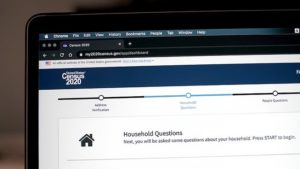
Latino communities are lagging behind in 2020 census response rates, raising fears of low participation that could limit the reach of federal programs in those areas for the next decade.
The country’s most heavily Latino congressional district, California’s 40th, had a response rate of 49.5 percent as of Tuesday, compared with the state’s 60.1 percent rate and the national 59 percent rate. Puerto Rico, a territory that’s heavily dependent on federal funding and is 98.6 percent Latino, has a response rate of only 8 percent, far short of its 2010 response rate of 53.8 percent.
In Texas, the most Latino district in the state is also the one most lagging in census responses. That district’s House representative, Filemon Vela (D), told The Hill that before the coronavirus pandemic, census outreach was a top issue for representatives in the Rio Grande Valley region.
“And then, boom! COVID came and our efforts have been totally redirected to constituent services,” said Vela. “Now that I think about it, we could be doing census stuff at the same time but everything’s on fire, we’re working on basic stuff, making sure people are fed,” he added.
“The census is in crisis and Latinos are in the crosshairs in terms of everything that could possibly go wrong,” said Arturo Vargas, the CEO of the National Association of Latino Elected Officials. Latinos have been hit hard by the virus itself and by its economic consequences, with record job losses, a high number of those still employed being essential workers and disproportionate rates of infection.
That leaves many reluctant to focus on the less immediate question of the census. The pandemic’s effects on Latino response rates comes as concerns were already brewing about how many households would be afraid to take the survey after a controversy involving the addition of a citizenship question, which the Supreme Court shot down last year.

Recent Comments